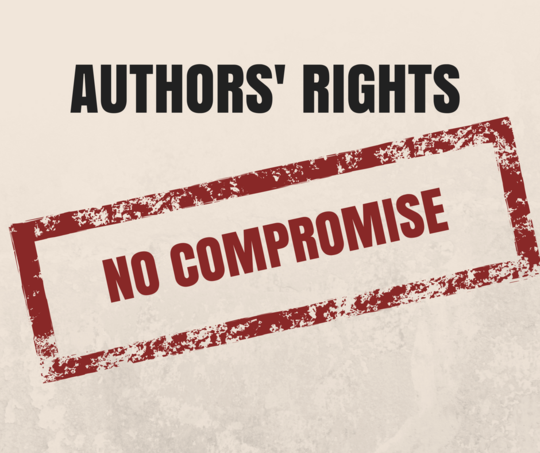The proposed directive, the federations say, includes important provisions for the creative and media industries and for authors. It offers the publishing industry and journalists a share of the revenue their work generates online (Article 11), introduces the principle of appropriate and proportionate remuneration for authors (Article -14), key transparency obligations, alternative dispute mechanisms and the possibility for authors to be represented by their unions (Articles 14-16).
However, serious concerns remain over the risk that journalists in some EU Member States may be entirely deprived of their share of the revenue through buy-out contracts whereby authors are forced to abandon all rights and entitlements (Recital 35), lump sums and other abusive measures which the current text of the Directive fails to tackle.
The IFJ/EFJ encourage a fair management of the new revenue, through collective bargaining and collective management when possible. The federations say that references in Recital 35 to “contractual arrangements between publishers and authors/rightsholders” (1) and to “Member States’ laws on ownership and exercice of rights in the context of employment contracts” (2), will be used to restrict or bar journalists from benefiting of a fair share of the neighboring right, and jointly call for its deletion.
As a response to these concerns, the European Commission has provided the following answers last week:
- “Journalists will not only benefit from the new right granted to press publishers, but also from the new provisions on the fair remuneration of authors and performers”;
- “According to the new rules, journalists will have to receive an appropriate share of the revenues generated by the new publishers’ right”;
- “The Directive makes sure that every journalist will benefit from protection in his or her contractual relationship with publishers across Europe”.
To mitigate the provision’s negative impact, the federations are urging publishers to agree to a policy and principles for implementation at the national level which can address the shortfalls in the text. In particular, they have called for a joint position clarifying the implementation of Recital 35 (mirroring Article 11) and an agreement that journalists will receive a fair share of the benefits deriving from the neighboring right, irrespective of the contractual terms concluded between publishers and authors, and of national industry licensing standards.
“Giant techs and big business must not earn money from content created by journalists without compensating them fairly. Our organisations have been vocal and instrumental supporters of the Directive, helping to secure its successful adoption in the European Parliament on 12 September. Journalists must receive a fair and unwaivable share of the benefits which will arise from this Directive,” said IFJ President Philippe Leruth.
“We know that everything is not solved, but I strongly believe this directive can give us tools to defend existing rights, improve authors’ rights in the digital economy and ensure remuneration is shared with journalists in a fair way,” added Mogens Blicher Bjerregård, president of the EFJ. “What we have achieved is also a result of cooperation among authors’ organisations, within the creative industry and of an agreement with the newspaper publishers’ organisation of that remuneration must be shared with journalists in a fair way” , he added and welcomed "a good dialogue with the publishers urging our respective affiliates to respect of 11 (4a) also at the national implementation”.
“The directive represents a major step towards ensuring that journalists and other creators can thrive in the digital economy. We now need to work hard to ensure that its unhelpful provisions are clarified and that it isimplemented in a way that guarantees a fair share of the new revenue tojournalists in all EU member states”, concluded Mike Holderness, Chair ofthe EFJ Authors' Rights Expert Group.
Key provisions for journalists in the proposed directive:
Article 4 covers some uses of authors’ work in the educational sector: licensing is a good model for these. It is not optimal, and it is now important closely to follow the implementation of the directive in each Member State;
Article 9a maintains extended collective licensing models;
Article 11 gives publishers a share of the revenue their press publications generate online. Article 11 (4a) says that authors of works incorporated in a press publication will receive an appropriate share of the revenues that press publishers receive for the use of their press publication by information society providers. Journalists’ access to this right, however, is restricted by provisions in Recital 35;
Article 12 supports collective management organisations in developing licensing models;
Article 13 delivers new tools to force tech giants to pay creators, including photojournalists;
Article -14 establishes that authors and performers should receive an appropriate and proportionate remuneration against the transfer of their exclusive rights for the exploitation of their works;
Article 14-16, establish key transparency obligations on the industry regarding the use of authors’ works and the revenue they generate, provide for a contract adjustment mechanism, alternative dispute resolution procedure with the right for journalists to be represented by their organisations.

